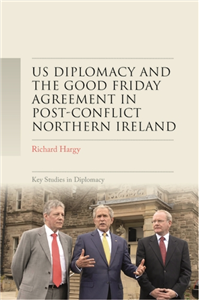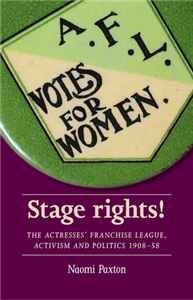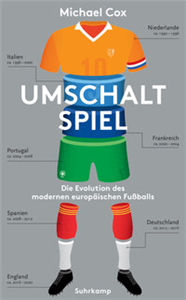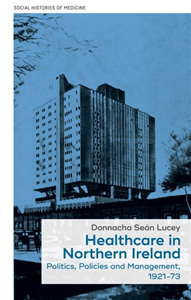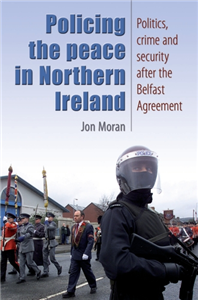Your Search Results
-
Learnetic S.A.
Learnetic is an innovative educational digital publisher, content developer and eLearning technology provider. We are a technology-based company with over 20 years of experience operating in international educational publishing business. We offer a complete suite of advanced software applications supporting all stages of ePublishing, providing our partners with professional Authoring Tools, eLearning Platforms and ready-made interactive learning content.
View Rights Portal
-
Promoted ContentHumanities & Social SciencesSeptember 2021
Populism in Europe
Lessons from Umberto Bossi's Northern League
by Davide Vampa, Daniele Albertazzi
Populism in Europe offers a detailed and systematic analysis of the ideology, electoral and governmental performances, organisational model, type of leadership and member activism of the Northern League under its founder, Umberto Bossi (1991-2012). Based on a wealth of original research, the book identifies the Northern League's consistent and coherent ideology, its strong leadership and its ability to create communities of loyal partisan activists as key ingredients of its success. Through their in-depth analysis, Albertazzi and Vampa show that the League has much to teach us about how populists can achieve durability and rootedness and how parties of all kinds can still benefit from a committed and dedicated membership today.
-
Promoted ContentTeaching, Language & ReferenceMay 2025
US diplomacy and the Good Friday Agreement in post-conflict Northern Ireland
by Richard Hargy
Richard Haass and Mitchell Reiss, as autonomous diplomats in the George W. Bush State Department, were able to alter US intervention in Northern Ireland and play critical roles in the post-1998 peace process. Their contributions have not been fully appreciated or understood. The restoration of Northern Ireland's power-sharing government in 2007 was made possible by State Department-led intervention in the peace process. There are few references to Northern Ireland in work examining the foreign policy legacy of the George W. Bush presidency. Moreover, the ability to control US foreign policy towards the region brought one of George W. Bush's Northern Ireland special envoys into direct diplomatic conflict with the most senior actors inside the British government. This book will uncover the extent of this fall-out and provide original accounts on how diplomatic relations between these old allies became so fraught.
-
 Trusted Partner
July 2021
Trusted Partner
July 2021The World of the North
Between Ragnarok and welfare utopia: A cultural-historical deconstruction
by Bernd Henningsen
— Analysis of how we view Europe's North and how this image emerged — An outsider's perspective on Nordic societies and their self image — Serves as an introduction into Northern European culture and society Our image of Northern Europe has been shaped by projections and desires in the long history of encounters: berserkers and war atrocities, bad weather, beautiful nature, stable political systems, social welfare, equality and prosperity, peacefulness, low corruption, hygge and Bullerby – all this is part of the Nordic narrative. But what about the religious, linguistic and ethnic homogeneity, what about the muchvaunted Nordic cooperation? How do politics "work" in the North? Why are Northern Europeans the happiest people?
-
 Trusted Partner
The ArtsNovember 2020
Trusted Partner
The ArtsNovember 2020Stage rights!
The Actresses’ Franchise League, activism and politics 1908–58
by Naomi Paxton
Stage rights! explores the work and legacy of the first feminist political theatre group of the twentieth century, the Actresses' Franchise League. Formed in 1908 to support the suffrage movement through theatre, the League and its membership opened up new roles for women on stage and off, challenged stereotypes of suffragists and actresses, created new work inspired by the movement and was an integral part of the performative propaganda of the campaign. Introducing new archival material to both suffrage and theatre histories, this book is the first to focus in detail on the Actresses' Franchise League, its membership and its work. The volume is formulated as a historiographically innovative critical biography of the organisation over the fifty years of its activities, and invites a total reassessment of the League within the accepted narratives of the development of political theatre in the UK.
-
 Trusted Partner
Humanities & Social SciencesMarch 2016
Trusted Partner
Humanities & Social SciencesMarch 2016The Model Arab League manual
A guide to preparation and performance
by Philip D’Agati, Holly Jordan
This textbook provides a comprehensive overview of the Model Arab League (MAL) programme for first time and returning students. Drawing on over fourteen years of combined experience in successfully leading award-winning MAL delegations, Philip D'Agati and Holly A. Jordan provide students with an introduction to being a delegate and tips on effective research techniques as well as simplifying the complex process of taking on the identity of a state and then representing it effectively in a MAL debate. ;
-
 Trusted Partner
April 2020
Trusted Partner
April 2020Umschaltspiel
Die Evolution des modernen europäischen Fußballs
by Michael Cox
Der Fußball, heißt es, schreibt die unglaublichsten Geschichten. Höchste Zeit also für eine unglaublich gute Geschichte des Fußballs. Michael Cox erzählt sie ab dem Jahr 1992, als die Änderung der Rückpassregel und die Einführung der Champions League den Sport veränderten und einen weiteren Professionalisierungsschub auslösten. Cox zeichnet nach, wie die großen europäischen Fußballländer mit ihren Clubs und Nationalmannschaften jeweils eine Zeit lang dominierten, bis die Konkurrenz ihren Erfolgscode knackte und die Evolution weiter vorantrieb. José Mourinhos abgezockte Abwehrmaschinen, Pep Guardiolas Kurzpass-Tiki-Taka, das Gegenpressing und Umschaltspiel von Jürgen Klopp – Cox porträtiert die prägenden Figuren dieser knapp drei Jahrzehnte und erklärt ihre taktischen Neuerungen. Und er erinnert an legendäre Spiele, etwa an den Moment, als der portugiesische Nationaltorwart Ricardo im EM-Viertelfinale 2004 plötzlich seine Handschuhe auszog, den letzten Elfmeter der Engländer hielt und den entscheidenden selbst verwandelte.
-
 Trusted Partner
May 2020
Trusted Partner
May 2020Umschaltspiel
Die Evolution des modernen europäischen Fußballs
by Michael Cox, Stephan Gebauer
Der Fußball, heißt es, schreibt die unglaublichsten Geschichten. Höchste Zeit also für eine unglaublich gute Geschichte des Fußballs. Michael Cox erzählt sie ab dem Jahr 1992, als die Änderung der Rückpassregel und die Einführung der Champions League den Sport veränderten und einen weiteren Professionalisierungsschub auslösten. Cox zeichnet nach, wie die großen europäischen Fußballländer mit ihren Clubs und Nationalmannschaften jeweils eine Zeit lang dominierten, bis die Konkurrenz ihren Erfolgscode knackte und die Evolution weiter vorantrieb. José Mourinhos abgezockte Abwehrmaschinen, Pep Guardiolas Kurzpass-Tiki-Taka, das Gegenpressing und Umschaltspiel von Jürgen Klopp – Cox porträtiert die prägenden Figuren dieser knapp drei Jahrzehnte und erklärt ihre taktischen Neuerungen. Und er erinnert an legendäre Spiele, etwa an den Moment, als der portugiesische Nationaltorwart Ricardo im EM-Viertelfinale 2004 plötzlich seine Handschuhe auszog, den letzten Elfmeter der Engländer hielt und den entscheidenden selbst verwandelte.
-
 Trusted Partner
Business, Economics & LawSeptember 2016
Trusted Partner
Business, Economics & LawSeptember 2016The British people and the League of Nations
by Helen McCarthy
-
 Trusted Partner
Trusted Partner
-
 Trusted Partner
Humanities & Social SciencesSeptember 2008
Trusted Partner
Humanities & Social SciencesSeptember 2008Northern Ireland after the troubles
A society in transition
by Colin Coulter, Michael Murray
In the last generation, Northern Ireland has undergone a tortuous yet remarkable process of social and political change. This collection of essays aims to capture the complex and shifting realities of a society in the process of transition from war to peace. The book brings together commentators from a range of academic backgrounds and political perspectives. As well as focusing upon those political divisions and disputes that are most readily associated with Northern Ireland, it provides a rather broader focus than is conventionally found in books on the region. It examines the cultural identities and cultural practices that are essential to the formation and understanding of Northern Irish society but are neglected in academic analyses of the six counties. While the contributors often approach issues from rather different angles, they share a common conviction of the need to challenge the self-serving simplifications and choreographed optimism that frequently define both official discourse and media commentary on Northern Ireland. Taken together, the essays offer a comprehensive and critical account of a troubled society in the throes of change. ;
-
 Trusted Partner
Humanities & Social SciencesJanuary 2017
Trusted Partner
Humanities & Social SciencesJanuary 2017Theories of International Relations and Northern Ireland
by Timothy J. White
-
 Trusted Partner
Humanities & Social SciencesDecember 2019
Trusted Partner
Humanities & Social SciencesDecember 2019Northern Ireland and the politics of boredom
by George Legg
-
 Trusted Partner
Humanities & Social SciencesNovember 2010
Trusted Partner
Humanities & Social SciencesNovember 2010Devolution and the governance of Northern Ireland
by Colin Knox
This book offers the first account of what the First Minister, Peter Robinson, describes as the most settled period of devolution in Northern Ireland for almost forty years. It traces the tortuous path to devolved government, the political instability which constantly threatened the institutions, and since May 2007 the bedding down of devolution and its impact so far on the people of Northern Ireland. The book parallels accounts of devolved government in Scotland and Wales. For years Northern Ireland has been the subject of academic enquiry relating to political, constitutional and security issues. Now as a post-conflict society political parties which for years engaged in the politics of antagonism must now redirect their efforts to delivering public policies that will improve the quality of people's daily lives. This has not come easily to them. This book is therefore the first study which looks at devolved power sharing governance arrangements in Northern Ireland and a sequel to Derek Birrell's book Direct Rule and the Governance of Northern Ireland. Manchester: Manchester University Press (2009) The book contains chapters on the key governance institutions: the civil service, local government, non-departmental public bodies, and the vibrant third sector in Northern Ireland. It examines in some detail the major review of public administration ongoing since 2002 and the more recent public services modernising agenda. Importantly, given the sectarian divisions which have segregated every aspect of life in Northern Ireland, the book asks the key question whether it is possible to reconcile the two communities or are they destined to live 'separate but equal' lives. Finally, the book considers topical issues which are at the early stages of implementation: community planning and central-local relations. This book will be of interest to students of devolution across the UK and beyond. It will also be relevant for those researchers working in the area of post-conflict societies. ;
-
 Trusted Partner
Teaching, Language & ReferenceJuly 2015
Trusted Partner
Teaching, Language & ReferenceJuly 2015Politics and peace in Northern Ireland
Political parties and the implementation of the 1998 Agreement
by David Mitchell
Politics and peace in Northern Ireland analyses the complex and contradictory process of implementing the Good Friday Agreement. Using the lens of security dilemma theory, it begins with an original overview of the conflict, the Agreement and post-1998 politics. The book then explores post-Agreement Northern Ireland through the eyes of each of the four main political parties, showing how they tried to shape the course of peace implementation, and how implementation, in turn, shaped the fates and fortunes of the parties. Drawing on extensive original research, this book explains the promise and limits of the Agreement. It shows how and why the two sides' mutual insecurities repeatedly derailed peace implementation, and reflects on the likely direction of parties and politics in the future. This clearly written and up-to-date book will be of interest to scholars and students of recent Northern Irish history, ethnic conflict and peace-making. ;
-
 Trusted Partner
20th century history: c 1900 to c 2000October 2013
Trusted Partner
20th century history: c 1900 to c 2000October 2013Northern Ireland in the Second World War
Politics, economic mobilisation and society, 1939–45
by Philip Ollerenshaw
This original and distinctive book surveys the political, economic and social history of Northern Ireland in the Second World War. Since its creation in 1920, Northern Ireland has been a deeply divided society and the book explores these divisions before and during the war. It examines rearmament, the relatively slow wartime mobilisation, the 1941 Blitz, labour and industrial relations, politics and social policy. Northern Ireland was the only part of the UK with a devolved government and no military conscription during the war. The absence of military conscription made the process of mobilisation, and the experience of men and women, very different from that in Britain. The book's conclusion considers how the government faced the domestic and international challenges of the postwar world. This study draws on a wide range of primary sources and will appeal to those interested in modern Irish and British history and in the Second World War.
-
 Trusted Partner
Trusted Partner
-
 Trusted Partner
Political structure & processesMay 2007
Trusted Partner
Political structure & processesMay 2007Devolution and constitutional change in Northern Ireland
by Edited by Paul Carmichael, Colin Knox and Robert Osborne
This edited book, written by a collection of scholars with an interest in Northern Ireland, tracks its uneasy experience with devolution following the optimistic political period associated with the 1998 Belfast (Good Friday) Agreement. The volume brings together researchers from the Economic and Social Research Council's (ESRC) 'Devolution and Constitutional Change' Programme and other experts to record four key perspectives on Northern Ireland. First, it considers the inextricable link between devolution and constitutional developments. Second, it examines how the main political parties responded to devolution and the major challenges faced by society in moving beyond conflict (such as political symbolism, the role of women, equality and human rights issues). Third, it attempts to assess some of the workings of devolved government in its short-lived form or those seeded in devolution and carried on by direct rule ministers. Finally, Northern Irelands devolved government and associated institutions are located within the wider relationships with Westminster, the Republic of Ireland and Europe. This edited volume will be of interest to students of Irish politics and public policy, but more generally, from a comparative perspective, those with an interest in devolution and constitutional change. It may even assist politicians in Northern Ireland to reflect on the real potential to restore its devolved institutions and draw back from the brink of permanently copper-fastening 'direct rule' from Westminster.
-
 Trusted Partner
MedicineMarch 2026
Trusted Partner
MedicineMarch 2026Healthcare in Northern Ireland
Politics, Policies and Management, 1921-72
by Donnacha Lucey
-
 Trusted Partner
Humanities & Social SciencesApril 2008
Trusted Partner
Humanities & Social SciencesApril 2008Policing the peace in Northern Ireland
Politics, crime and security after the Belfast Agreement
by Jon Moran
This timely and controversial book shows how crime, and the authorities' response to crime, became central to the peace process in Northern Ireland. At times, paramilitary activity threatened to destabilise the peace in Northern Ireland after 1998, but crime was central to maintaining capacity should the groups return to war. Over time, the reduction of crime was central to these groups' own attempts to reform and official judgements as to whether they were genuinely demobilising. The state's response to crime added controversy. Police reform produced the Police Service of Northern Ireland (PSNI) and the new Organised Crime Task Force signalled the importance of crime control, but the Assets Recovery Agency, supposedly the 'magic bullet' for organised crime, misfired. Law enforcement was also deeply affected by the British state's response to paramilitary crime. By 2007, peace was apparently secure and paramilitaries were 'de-criminalising', but this often chaotic process was marked with questions about the British state's adherence to the rule of law. Incorporating first-hand research in the PSNI, the book will be of interest to general readers and scholars of Irish Studies, criminology, and British and comparative politics. ;
-
 Trusted Partner
Humanities & Social SciencesFebruary 2013
Trusted Partner
Humanities & Social SciencesFebruary 2013Catholic police officers in Northern Ireland
Voices out of silence
by Mary Gethins
This exciting book, newly available in paperback, aims to establish the historical and cultural reasons why there was only a participation rate of 7-8% by the Catholic population in policing Northern Ireland when the Police Service of Northern Ireland (PSNI) came into being in 2001, even though Catholics constituted 46% of the total population. It also aims to ascertain whether or not implementation of the Patten Commission's recommendation to recruit to the PSNI on a 50: 50 basis between Catholics and non-Catholics has resulted in greater representation and what the political and cultural obstacles might be in transforming policing from meeting colonial model criteria to those of the liberal model advocated by Patten. In doing this, author Mary Gethins uses a wealth of historical data to show that there has for a long time been a problematic relationship between the native Irish Catholic population and the police, and the reasons for Catholic under-representation in the police force can be largely put down to this legacy. A survey of Catholic police officers focusing on family history, reasons for joining the police and sacrifices perceived to have been made in joining a largely Protestant organisation provide a strong empirical evidence base from which Gethins draws illuminating lessons. The work is informed by sociological theory to show that Catholic police officers are atypical of the Catholic population at large in Northern Ireland, and best explained by the concept of fragmented identity. ;





